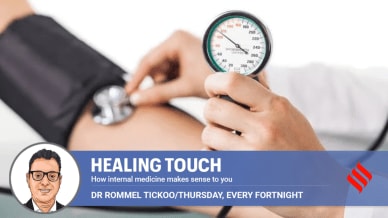My patient had high BP but no cholesterol or obesity: What was causing it?
Have you ever wondered what that potassium on your blood report means and why it can make your BP resistant

Last week, a 58-year-old man came to see me with high blood pressure, saying it was not settling within a normal range despite taking about four anti-hypertensive pills. Yet he didn’t have either high cholesterol or weight issues, the two primary triggers for hypertension. That’s when I called for a blood test and found his potassium levels to be extremely low. He surprised me even more. “Doctor, that’s nothing, I have had low potassium levels for years now,” he told me. And that’s when I realised what could have gone wrong with him.
WHY LOW POTASSIUM IS NOT ALWAYS ABOUT CHOLESTEROL OR HEART DISEASE?
Potassium helps lower blood pressure by counteracting the effects of sodium and relaxing blood vessel walls. It ensures sodium excretion through urine, reducing the amount of sodium in the body that can otherwise push up blood pressure. Additionally, potassium helps blood vessels relax, improving blood flow.
I asked my patient to undergo a simple urine test to confirm my suspicions. And there it was. He was suffering from Conn’s syndrome, a condition when the adrenal glands — the tiny glands sitting above your kidneys — produce excess aldosterone, a hormone that controls sodium and potassium levels as well as electrolyte balance in the blood. Too much aldosterone leads to low potassium and high blood pressure. This is more common in women than in men. It can happen at any age, but more often in people in their 30s and 40s.
WHY ADRENAL GLANDS ARE IMPORTANT
The adrenal glands control many processes in the body by producing hormones that are vital for smooth functioning. Apart from aldosterone, they also make cortisol, which the body summons during crisis times, elevating heart rate and boosting energy. Sometimes extra aldosterone may cause adenoma, a benign tumour that lowers potassium levels. Or it could trigger hyperplasia when the adrenal glands enlarge to produce more aldosterone. As he awaits his imaging results that will confirm one or the other condition and treatment, the takeaway is that you need to always investigate what’s causing your low potassium levels. That’s because low potassium causes secondary hypertension, which tends to be more resistant. Without treating the root cause of high blood pressure, it can be resistant to standard antihypertensive medication.
WHAT ARE SIGNS AND SYMPTOMS
Patients have higher than normal blood pressure which cannot be controlled by multiple drugs. It can cause muscle weakness, cramps, headaches, increased thirst and urination. Less obvious signs are lack of muscle strength, frequent or night-time voiding, pins and needles tingling, even eyesight problems.
Sometimes, things may get complicated, necessitating removal of the adrenal gland with the tumour. This surgery is done laparoscopically, or when a few small cuts are made to provide access for surgical tools and a camera to be placed inside the body through these openings.
Most patients have a rapid and uneventful recovery from surgery. High blood pressure is greatly improved in 80 to 90 out of 100 cases. But even after surgery, you may still have high blood pressure. You may need drugs for hours or weeks until your blood pressure returns to normal.
You should still see your doctor after treatment so that they can confirm normalisation of aldosterone levels in the blood and also monitor your blood pressure and electrolytes levels. If it is hyperplasia, then there are targetted medicines. Besides, these have to be supplemented with potassium pills and anti-hypertensives. Left untreated, the tumour or gland enlargement can both increase the risk of kidney and heart disease. Both can lead to sodium and water retention and elevate blood pressure.
It is important to locate the source of your blood pressure than just pop pills.
(The author is director, internal medicine, Max Healthcare)